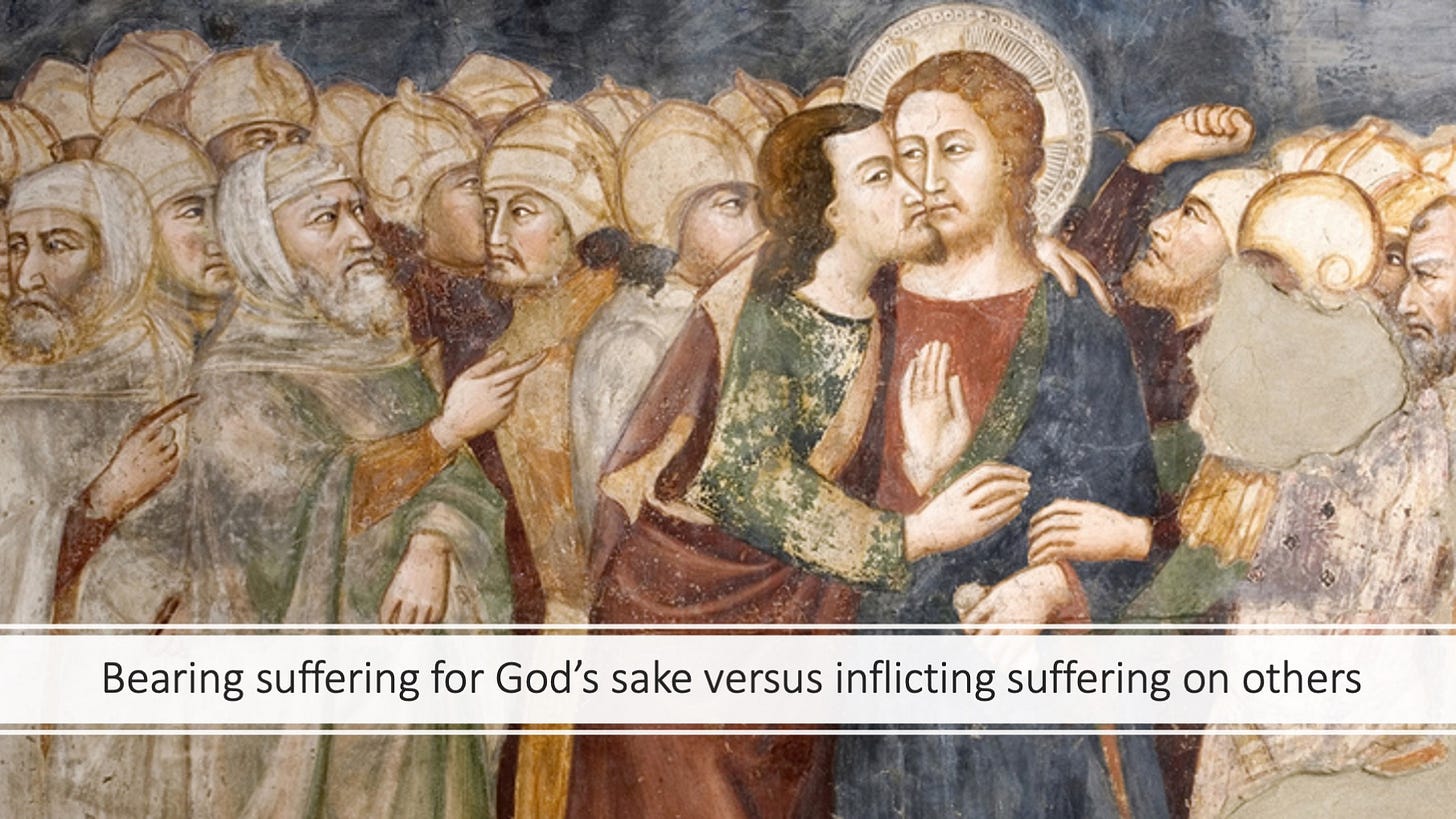Bearing suffering for God’s sake versus inflicting suffering on others
Psalm 69:8-10, 21-22, 31 and 33-34. April 5, 2023 - Wednesday of Holy Week
Psalm 69 is sometimes given the title ‘a lament of innocent person’. The servant of God bears insult for God’s sake. He did not do anything wrong and yet he became the talk of the town and an object of drunkards' songs (see Ps 69:13). The innocent suffering of God’s servant is also the topic of the third song of Isaiah about God’s servant (Is 50:4-9) that features in the first reading. Moreover, he bears his sufferings with patience. He does not retaliate but puts his trust in God who supports him and will confirm his innocence (see Is 50:7-8).
Both the psalmist and Isaiah deal with the disturbing fact of persecution, suffering, and even death for the sake of God. Although the psalmist acknowledged his folly and wrongdoings (see Ps 69:6), he ascribes his sufferings to his faithfulness to God. So why is it that those who try to live in obedience to God’s will experience so many trials in the world? Why are Christians the most persecuted religious group in the world? Why does anti-Catholicism remain the only acceptable prejudice in the US? The psalmist prayed that the Lord would punish his persecutors and Isaiah predicted that those who inflicted the sufferings on God’s servant would bear the consequences of their action: “They shall all wear out like a garment; the moth will eat them up” (Is 69:9). Interestingly, this last part of the third song of Isaiah is omitted from our liturgical reading.
Psalm 69 is often quoted in the New Testament. For example, the words “zeal for your house consumes me” (Ps 69:10) are used to explain the cleansing of the temple by Jesus in the Gospel of John (see John 2:17). Saint Paul in the letter to the Romans quotes from our psalm the phrase: “the insults of those who blaspheme you fall upon me” (Ps 69:10; see Rom 15:3). The apostle applies them to the sufferings of Jesus Christ. There is also an allusion to this psalm in the Passion story when Jesus was given the sour wine to drink just before his death (Ps 69:22; see Mark 15:36; John 19:29).
Jesus’ Passion Narrative began with the Last Supper during which he declared that one of his disciples would betray him. And here we encounter the biblical paradox. On the one hand, what happened to Jesus was written in the scriptures. “The Son of Man is indeed going away as it is written about him”. But on the other hand, we are free to choose our role in God’s design. “But woe to that man by whom the Son of Man is betrayed” (Matt 26:24). Nobody forced Judas to take upon himself that ignominious role of betraying Jesus Christ.
It is not easy to bear insult and suffering for the sake of God. The Christian life is filled with challenges, trials, and persecutions. And even now, there are many followers of Christ being killed for holding to their faith. And yet, there is no doubt that there is a huge difference between the persecuted and the persecutors, between those who suffer and those who inflict suffering upon others. Some said that “anyone who harms another destroys not only that person but also himself”. Jesus stated it more powerfully: it would be better for such a person “if he had never been born” (see Matt 26:24).




